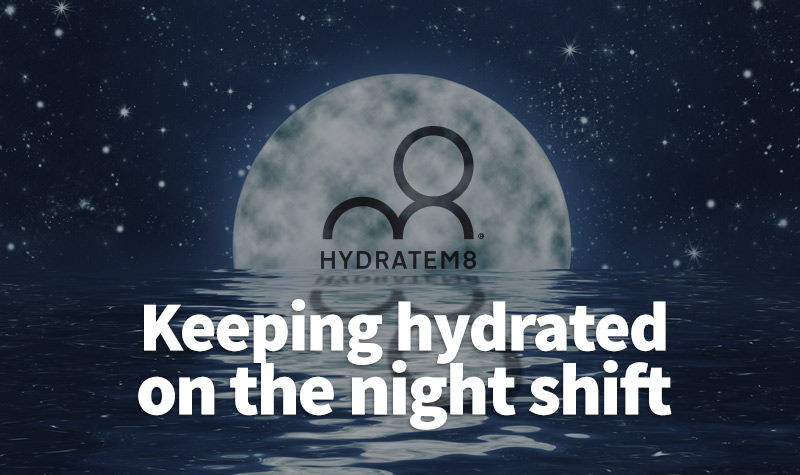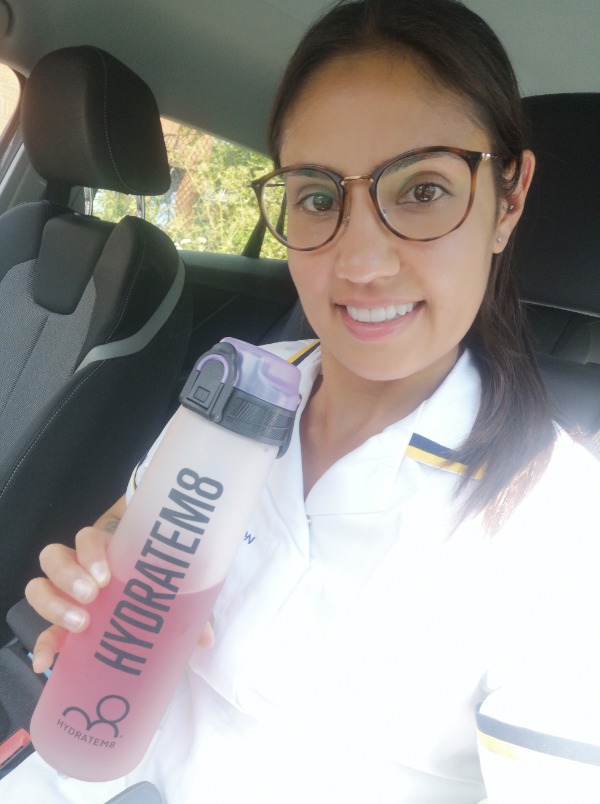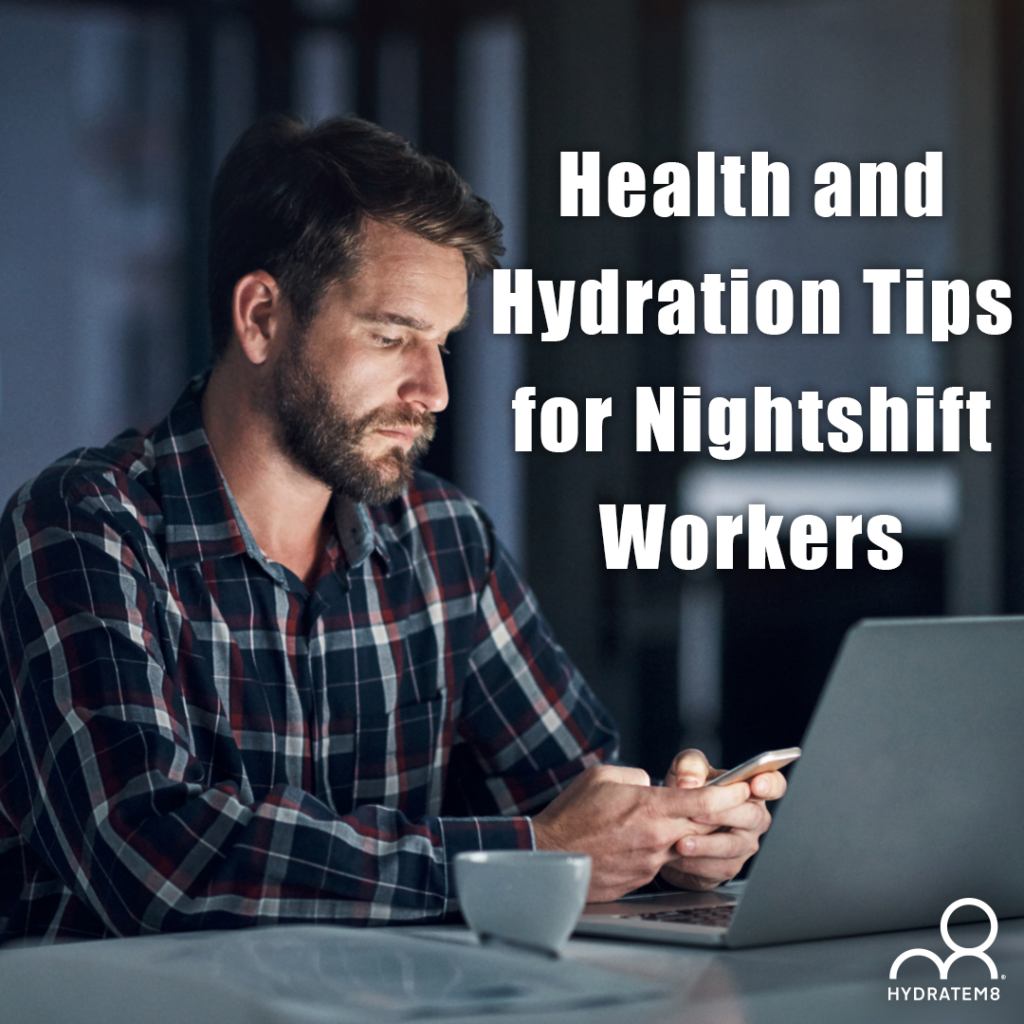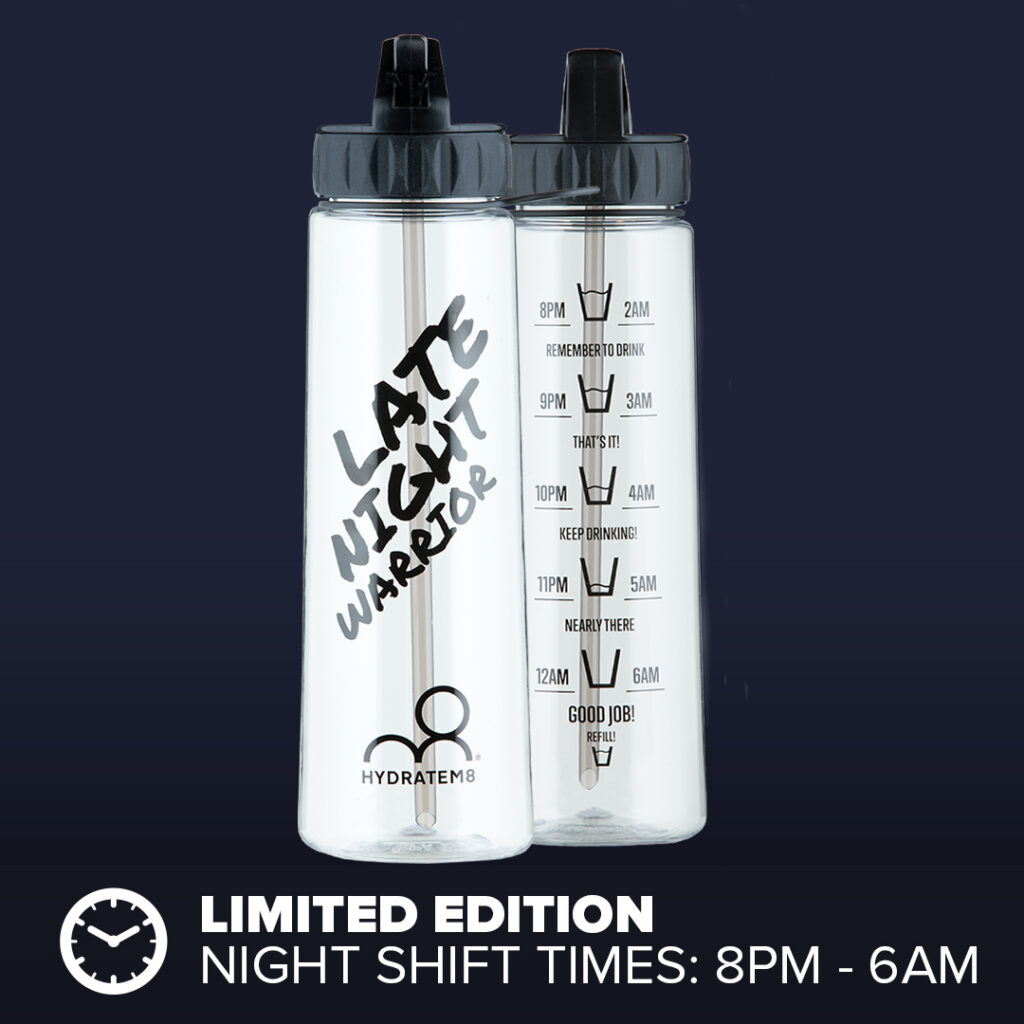Here at HydrateM8, we have recently had a flurry of emails regarding keeping hydrated during difficult shift patterns, particularly in the nursing world, but there are many other occupations where hydration is the last thing on anyone’s mind. By the time you realise that your mouth is dry, your lips may also be dry and starting to crack, you are already in the throes of dehydration.
Night shifts are particularly difficult – you are in an ‘ethereal world’ when you know that most people are sleeping, and there can be an eerie silence, even if you are rushed off your feet tending patients, or concentrating on complicated machinery. Your body clock will be out of whack, your diet potentially shot to pieces, and your mind can be on other things.
There is no known cure for shift work – if it is your career, you have to do it! But you can help yourself to be the healthiest you can, by simply following a few easy steps.
Being thirsty and dehydrated is a very common occurrence when working shift patterns, particularly if you work in a ‘thermal-stressed atmosphere’- somewhat akin to being a plant in Kew Gardens Hothouse, the only difference being that you won’t flourish! You may begin to notice that your head is aching, you feel quite irritable and pretty fatigued. You may even have a little blurred vision – cue, danger – these are definite symptoms of dehydration. The worse it gets the more critical it can become, with potential dizzy spells and even fainting on the job. Not good.
Shift work, particularly for those involved in night shifts, goes against the body clock and affects your circadian rhythm, a process in the body which is closely linked to the amount of sunlight you receive. Furthermore, shift workers tend not to eat properly and rely on several snacks during their shift pattern, further exacerbating the workings of your body clock and adequate hydration. As many of these snacks are unhealthy and carb-laden, dehydration will set in at a faster rate. Even worse – time to eat and drink is often compromised by lower staffing levels and pressure from emergencies or timescale.

Primarily, the most important factor is to stay hydrated with good,clean water. Whilst you must eat, this does take second place in the health stakes. Here are some helpful tips:
- Stay as close as you can to the standard template of food consumption, i.e what you would do if working a normal day, with night being rest and sleep time.
- Eat a reasonably high level protein meal before leaving for work and avoid fatty foods such as chips, crisps etc.You can eat bacon and eggs, but try to add a couple of vegetables, even if only grilled tomatoes and mushrooms. Eggs and lean meat are particularly high sources of protein, along with certain vegetables such as spinach.
- Try not to eat between midnight and 6am in the morning, if your shift falls into this pattern. Eat before work, and at the end of your shift.
- You must hydrate regularly, never go more than 2 hours without the correct water intake, particularly if you are working in hot, dry surroundings (we recommend every hour in this instance).
- Limit caffeine intake – it can also distort your perspective on things.
- Try to get into the habit of taking your own food to work. A plastic tub with tight lid full of snackable hydrating foods is ideal, particularly if full of fruits and vegetables. You can avoid the snack dispensers in your workplace, particularly on a night shift where most food outlets will be closed. Keep a water bottle with you or close by -you can drink the water or also top it up with fruit.
Remember, most of all to drink the right amount of water during your shift.
There is light on the horizon for shift workers with more research taking place in EU funded projects to establish the affect that disruptive shift patterns have on the body and how conditions and time for regular,healthy eating and hydrating can be prioritised.




